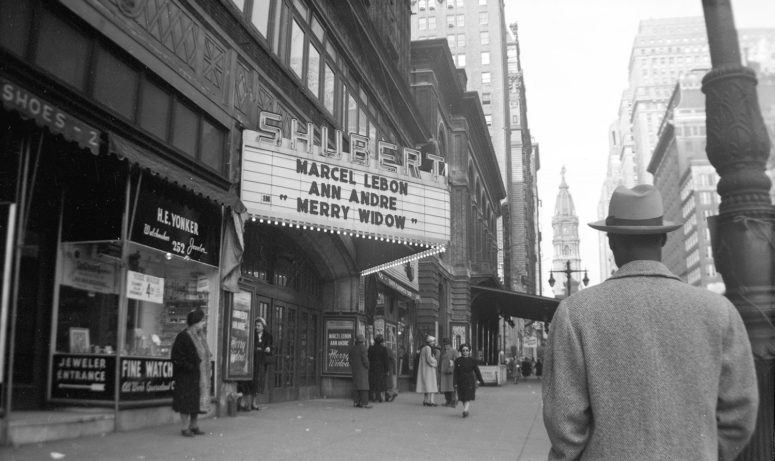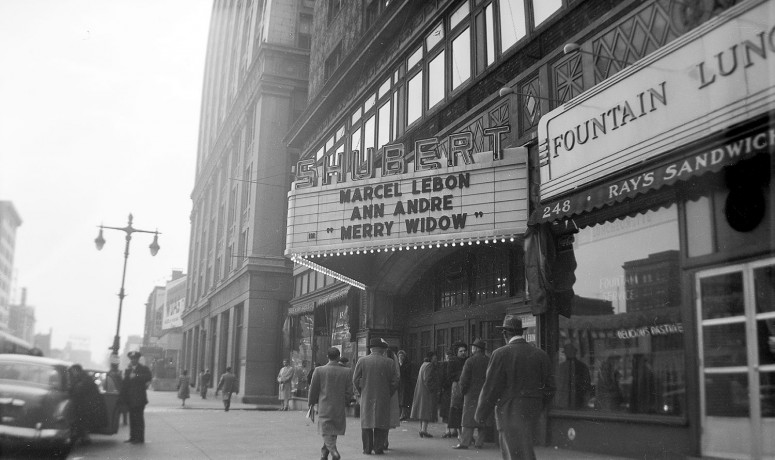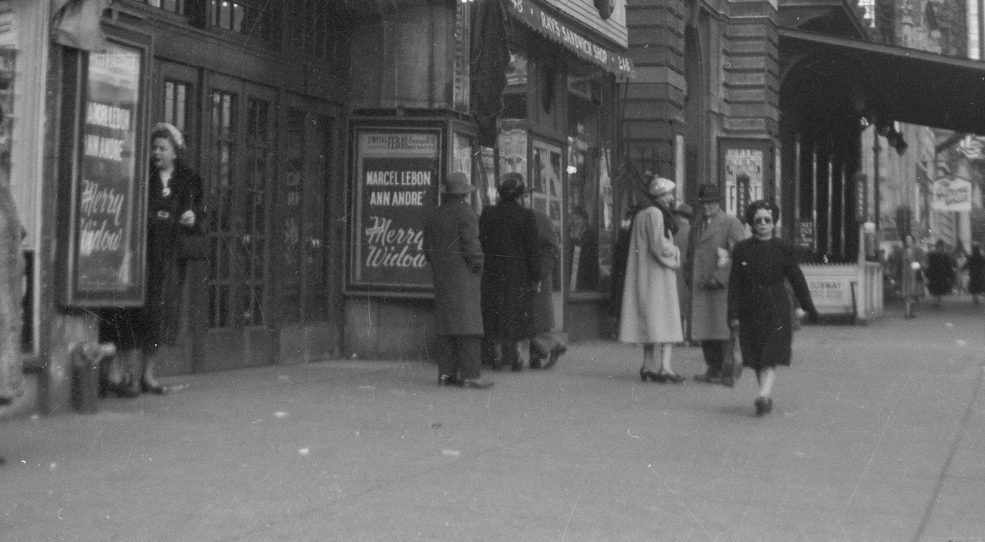Début février 1952. Vous êtes à Philadelphie pour quelques jours.
Vous vous promenez sur Broad Street. En face de vous, le City Hall. Sur votre gauche le théâtre Shubert. En 1991 il sera renommé Merriam Theater, mais on n’en n’est pas encore là.
Pour l’instant, ce qui vous importe, c’est qu’on y joue une version modernisée de La Veuve joyeuse, une opérette créée en 1905.
C’est tentant, et puis vous n’avez rien de prévu ce soir.
Vous allez lire la critique de Lauwrence R. Casler, vous vous déciderez après.


Alors, décidé à prendre un billet ?
The Music Box
At the Shubert
By LAWRENCE R. CASLER, January 31, 1952
[…]
But despite all these ornaments, I was still dissatisfied, and most of the people around me were, too. The fault, with apologies to Shakespeare, was not in ourselves but in the stars. Neither of the principal performers lived up to the publicity they had received. Ann Andre, the Widow, was sufficiently voluptuous, but she mouthed most of her delicious lines to such an extent that I understood very little of what she said. This might be forgiven, if she had an exceptionally fine voice, but she doesn’t. It is much too small, and she has trouble hitting her high notes.
Marcel Lebon, as Prince Danilo, was even worse. When I heard that he had just come over from France, I was looking forward to a composite of Charles Boyer and Jean Sablon. And that’s just what I got–he sings like Boyer and has the dramatic ability of Sablon. I must admit he is a good looking actor, and he added a lot to the show as long as he kept his mouth shut.
If you decide to see this (and you really should because of the delightful shenanigans of the minor players), take my advice and go home after the second act. Act Three is terrible. The « action » takes place in Maxim’s ritzy restaurant and attempts to give the weary audience (the show lasts until 11:30) a picture of Parisian night-life. The plot stands still while Monsieur Lebon, in his own inimitable fashion, emasculates four songs. Then there are a couple of dance sequences, a comedy skit, and at long last the thing is over. If Lehar were alive and saw this act, he would wish he were dead.
